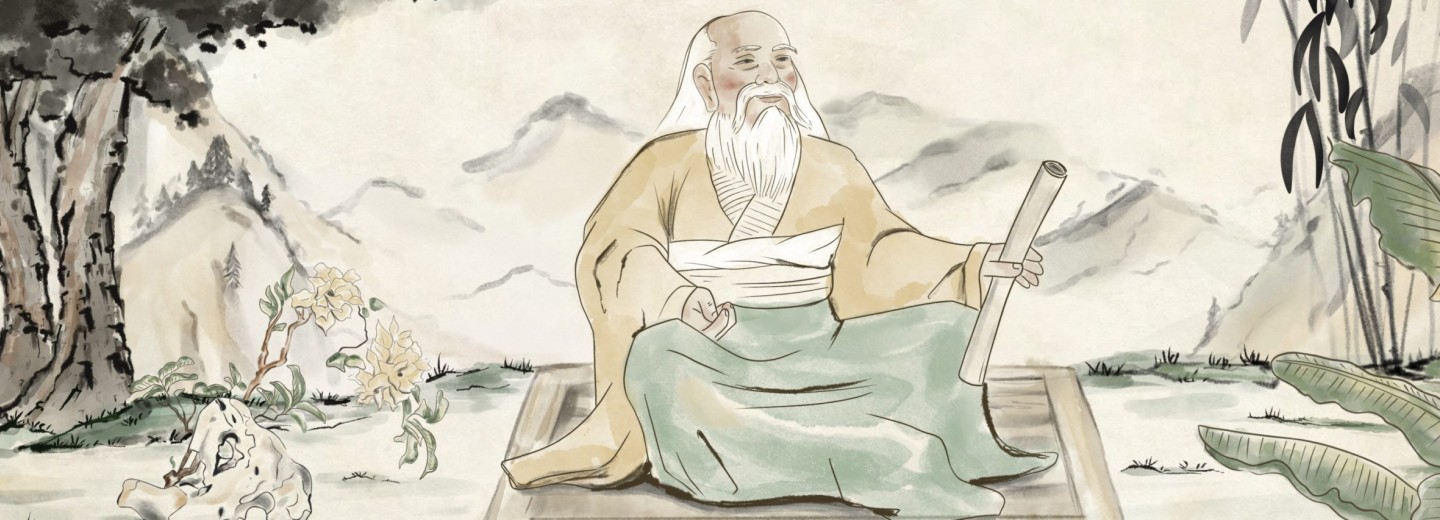Chinese philosophers
I have written more than one post on the philosophical background to Chinese culture and the influence this has on China, Chinese families, and the Communist Party of China today. In this article, I go back to the thoughts the philosophers expressed. They sound so familiar to us. The dates, the words and even the authorship of these writings are uncertain still. Yet, most scholarly opinion agrees around the most important facts.
Background
Although there is a wealth of evidence of civilisation in China beforehand, the earliest recorded history begins with the Xia dynasty that lasted from 2205-1766 BCE. No doubt archaeologists will find earlier history, perhaps in other parts of China.
At present scholars accept that the Chinese civilisation began in the so-called Central Plains.After the Xia, dynasty succeeded dynasty, kingdoms rose and fell. In about 453 BCE, China entered the ‘warring states’ period, when kingdom fought against kingdom until the First Emperor defeated his rivals and formed ‘modern’ China in 221 BCE.
Just before this, when relations between the states were breaking down, lived the remarkable Confucius (551- 479 BCE). He and his many disciples expressed the core of Chinese culture then and today. At least three of these disciples – Mo Zi (479-381 BCE), Mengzi (Mencius) who lived from 372–289 BCE and Xunzi (340-245 BCE) left volumes of their thoughts. All drew on the histories of the supposed golden ages of Chinese civilisation that began nearly two thousand years before.
Meanwhile in Greece
10,000 kilometres to the west, Plato (424-348 BCE), Socrates (470-399 BCE) and later Aristotle (384-322 BCE) led other Athenian philosophers and ‘created’ Western culture. As we pointed out in an earlier post, the different cultural influences of Ancient Greece and early China determine many of the disagreements and suspicions that face us today.
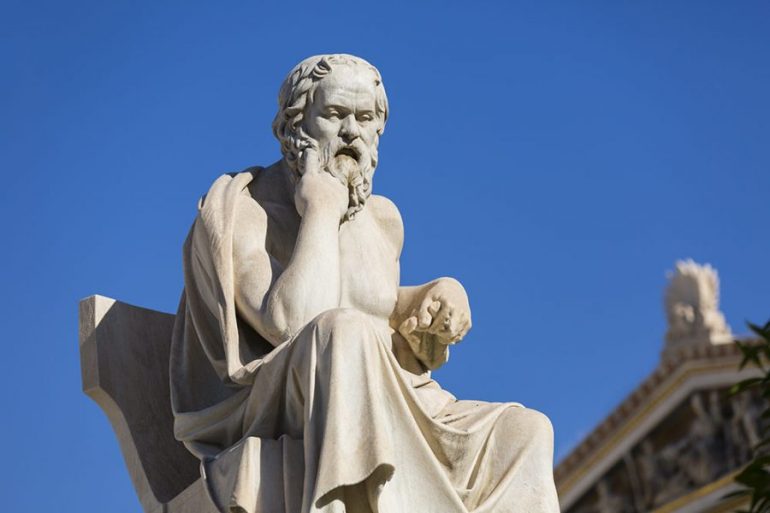
We should not suppose that two groups of philosophers, however eminent ‘create’ cultures that have endured for nearly 2,500 years. They were encoding and articulating cultures that had already existed for centuries before they lived. We must accept also that cultures develop and change over the years. What was relevant and important in 400 BCE is not always the same today.
Finally, within both schools of thought, Greek and Chinese, there were significant differences of opinion. Just as academics and scientists today argue bitterly even about concepts and even facts, so they did 2,500 years ago.
Chinese philosophers disagree
Mengzhi, for example, believes in the goodness of human nature.
The reason why I say that all humans have hearts that are not unfeeling towards others is this. Suppose someone suddenly saw a child about to fall into a well. Anyone in such a situation would have a feeling of alarm and compassion, not because one sought to get in good with the child’s parents, not because one wanted fame among neighbours or friends, and not because one would dislike the sound of the child’s cries. From this we can see this when it without feeling of compassion one is not human.
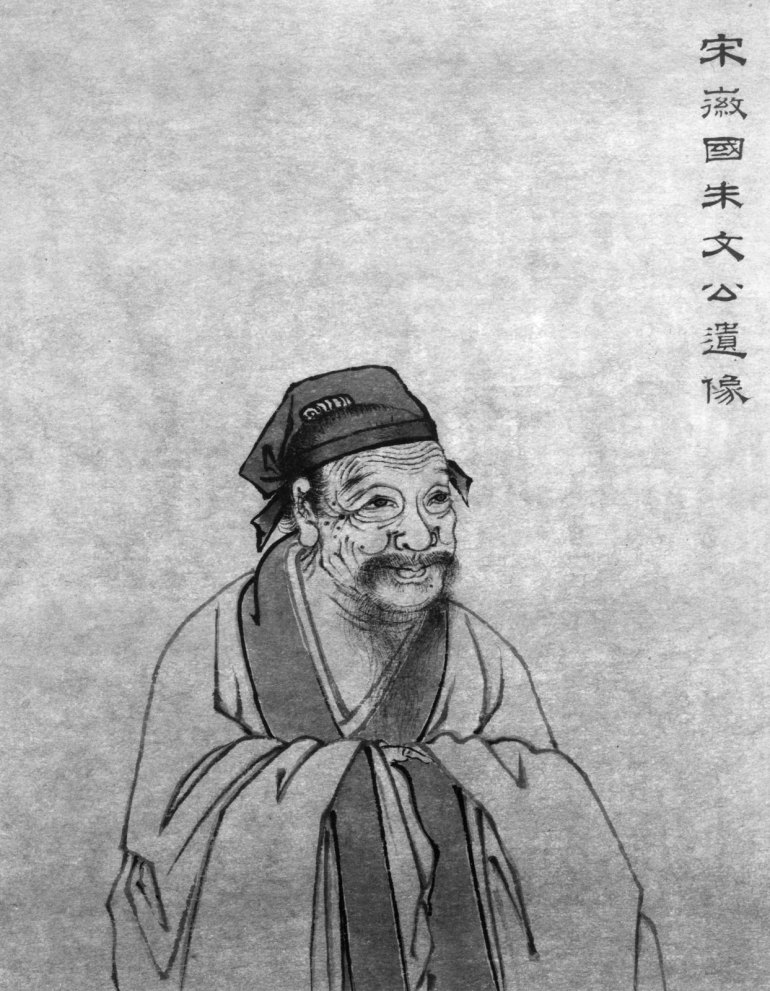
And again:
Life is something I desire. Righteousness is also something I desire. If I cannot have both, I will forsake life and select righteousness. It is not the case that only the worthy people have this heart. All humans have it: the worthy person simply never loses it.
Now read Xunzi:
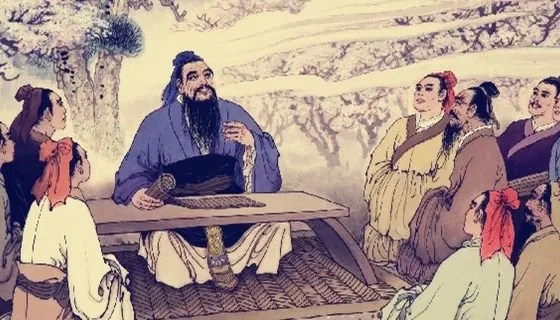
People’s nature is bad. Their goodness is a matter of deliberate effort. People’s nature is such that they are born with a fondness for profit in them. If they follow along with this, then struggle and contention will arise and yielding and deference will perish…. Thus, if people follow along with their inborn dispositions and obey their nature, they are sure to come to struggle and contention, turning to disrupting social divisions and order, and end up becoming violent. So, it is necessary to await the transforming influence of teachers and models and the guidance of ritual, and only then will they come to yielding and deference, turning to proper form and order and ending up becoming controlled. Looking at it in this way, it is clear that people’s nature is bad, and their goodness is a matter of deliberate effort.
Confucius, who wrote before either of his disciples, summed it up nonetheless:
I have never met a man who finds benevolence attractive or a man who finds unbenevolence repulsive. A man who finds benevolence attractive cannot be surpassed. A man who finds unbenevolence repulsive can perhaps be counted as benevolent for he would not allow what is not benevolent to contaminate his person. Is there a man who, for the space of a single day, is able to devote all his strength to benevolence? I have not come across a man whose strength is insufficient for the task. There must be such cases of insufficient strength, only I have not come across them.
Fate
Then there is the question of fate, pre-destination or the ‘Decree of Heaven’. To what extent must the gentleman accept his fate? If he does not accept it, what should he do instead? Confucius and Mengzhi were certain that many events occurred without intervention from Man.
When a thing is done by no-one, then it is the work of Heaven; when a thing comes about though no one brings it about, then it is decreed.
Confucius and Mengzhi believed that if a man is convinced that all desirable things in life are due to destiny, he is more likely to see the futility of pursuing them and instead bend his efforts to the pursuit of morality. Making the effort to be benevolent is the aim. The outcome is irrelevant.
Mengzhi was advising a King who asked” “The people of Xi have annexed the neighbourhood state and have started to fortify it. I am very concerned how should I handle this.” Mengzhi replied:
In former times a certain king dwelled in harmony. The tribes of the north invaded, and he fled to the mountains and dwelt there. He did not choose to do so; he simply could not do anything else. He just did what was good. Among his sons and grandsons in later generations there would be another king. This story is saying that people should only put full effort into what ought to be done. They cannot try to be lucky regarding what it is hard to be certain about.
Mo Zi takes a different view:
Among officers and gentlemen of the world at the present time, there are some who take there to be fate. How can they not look to the past and consider the examples of the sage kings? In ancient times, the disorder of Jie (the last ruler of the Xia dynasty in 1675 BCE) was inherited by Tang (the first ruler of the next (Shang) dynasty that lasted 500 years) who brought order to it. The disorder of Zhou was inherited by King Wu who brought order to it. The world never changed, and the people never changed but, under Jie and Zhou, the world was in disorder, whereas under Tang and Wu the world was well ordered. How can they say there is fate?
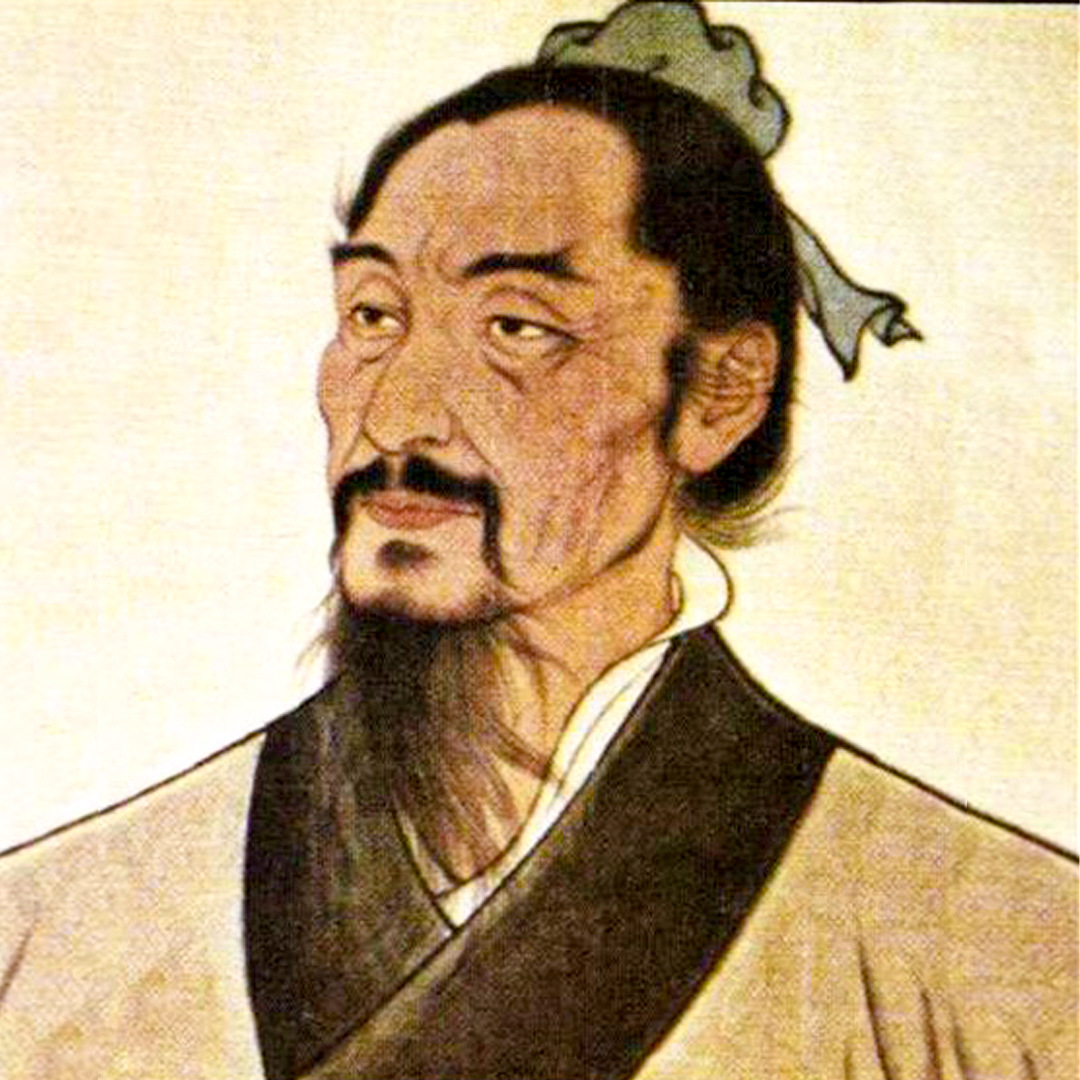
(Mo Zi, incidentally, seems to have been something of a Puritan. He wrote several, closely argued, essays about the evils of music and the depravity of playing and listening it!)
Cultural legacy
Differences naturally exist between men of learning. The differences of opinion are not as remarkable as the overall themes and values that all the Chinese philosophers shared:
- Obedience. “It is rare for a man whose character is such that he is good as a son and obedient as a young man to have the inclination to transgress against his superiors. It is unheard of for one who has no such inclination to be inclined to start a rebellion”. Confucius
- The family: “Filiality and respect for elders constitute the root of humaneness.” Mengzhi. “if elders and the young have their proper ordering, then work will be quickly accomplished and there will be time for rest.” Xunzi
- Worthiness, benevolence, righteousness: “Those who are not righteous we shall not enrich; those who are not righteous we shall not ennoble; those who are not righteous we shall not be kin to; those who are not righteous we shall not associate with.” Mo Zhi
- Order and unity: “Ancient times, when people first came into being, were times when there were as yet no laws or government, so people had different principles. If there were ten people, there were ten principles. In this way fathers and sons and older and younger brothers were resentful and hostile and unable to reach agreement. Throughout the world, people used water and fire and poison to harm one another. As a result, surplus goods rotted and decayed, and good doctrines were hidden. The world was in a state of disorder comparable to that amongst the birds and beasts. It is quite clear that what is taken as disorder in the world, arises from lack of effective rule.” Mo Zi.
- Government: “One who uses power to feign benevolence is a hegemon. A hegemon must have a large state. One who uses virtue to put benevolence into fact as a king does not depend on size. If one makes others submit with power, their hearts do not submit. Power is inadequate to make their hearts submit. Therefore, make others submit with virtue and they are pleased in their hearts and genuinely submit.” Xunzi.
Summary
This is a highly personal, subjective, glimpse at the thousands of complicated thoughts and deep feelings of great philosophers. These were translated by distinguished scholars who have made it their life’s work and yet remain uncertain if they fully understand the authors’ meanings. Yet, imperfect though it all may be, one cannot fail to be impressed by how much remains relevant and important today. It is pointless for nations to call each other ‘good’ or ‘bad’, when the meaning of ‘good’ and ‘bad’ so often depends on culture.
As an indication of the many double meanings, I shall leave the last words to Confucius:
“Tzu-kung asked: “What do you think of me?”
The Master said: “You are a vessel.”
“What kind of vessel?”
“A sacrificial vessel.”
Does this mean that Tzu-kung is always blamed for things he did not do? Or is it that a sacrificial vessel, usually made of jade, reflects Tzu-kung’s great value?
We may never know.
Bibliography:
Worked on the article:

Wanlikhang


